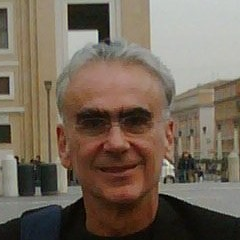A word of caution for first-timers at a performance of Verdi’s Simon Boccanegra: don’t take your seats without a thorough reading of the synopsis. Even then, the jumble of subplots and confusing characters – friends who turn into villains, others who disappear only to turn up decades later and still others who reveal themselves to be someone else than they seem to be – can leave opera-goers uncertain beyond the fall of the final curtain. Though magnificent in its own right, the score, too, may be problematic for those expecting one tuneful aria after the other and the flowing melodies of earlier Verdi operas. Boccanegra is as dark as the inner selves of the main characters, and Verdi's music reflects the melancholy of protagonists buffeted by tragic love, deceit and retribution.
With even the composer describing it as “too sad and desolate,” it takes a masterful performance to make all this gloom shine. The Wiener Staatsoper's revival of Peter Stein's production goes a way towards meeting this challenge, with skilful lighting, restrained set design and engaging performances.
No stranger to the title role, Plácido Domingo was a dramatically convincing Simon in his multiple manifestations as loving father, and alternately stern and magnanimous ruler as Doge of Genoa. When at its best, his voice displayed ease, power and mastery of legato. The role calls for a baritone, but instead of seeking to darken his timbre, he sings it as the tenor he used to be, and his high notes resounded with vigorous clarity, although there was some weakness in the lower registers. And while Domingo's voice occasionally got lost in the orchestra or in some of the ensembles, the seeming effort to conserve it paid off when called upon to provide riveting vocal drama. One good example, “Plebe! Patrizi! Popolo! ” – the doge’s call for peace to the senators and people of Genoa – has to be sung with a combination of lyric sensitivity and mercurial passion. It was a feat accomplished with ease.
With some limitations, Hibla Gerzmava was a riveting Amelia, the adopted daughter of the hostile Fiesco clan who is then revealed as the doge’s long-lost child. Her voice seemed to know no weakness, soaring easily over both orchestra and chorus, even in the most tumultuous of moments. Unlike Domingo, she was an unmistakable presence in all ensembles. But more dramatic than spinto, she lacked the limpidity called for in some of the more restrained passages, overpowering the soft woodwinds and violins in what is supposed to be a longing remembrance of her childhood in “Come in quest’ora bruna”.
The best in a strong cast was bass Günther Groissböck in his role debut as Fiesco, the doge’s sworn enemy (but only until he is told that Amelia, Simon’s recently revealed daughter, is his grandchild). In action and voice, he was the embodiment of the role, whether brimming with fury on first encountering Simon, his daughter’s lover, or seized with emotion in the doge's dying moments.
Also good was Najmiddin Mavlyanov as Gabriele Adorno, Amelia’s lover; Attila Mokus as Pietro, the doge’s chancellor-turned traitor and Dan Paul Dumitrescu as Pietro’s ally, Paolo. Carrying them all was the orchestra under Evelino Pidò, with all the wondrous instrumental colouring and musical leadership that this opera calls for.
Verdi once described Simon Boccanegra as “sad because it has to be sad. But it’s gripping.” So it was this evening; sad, gripping... and thoroughly enjoyable.




